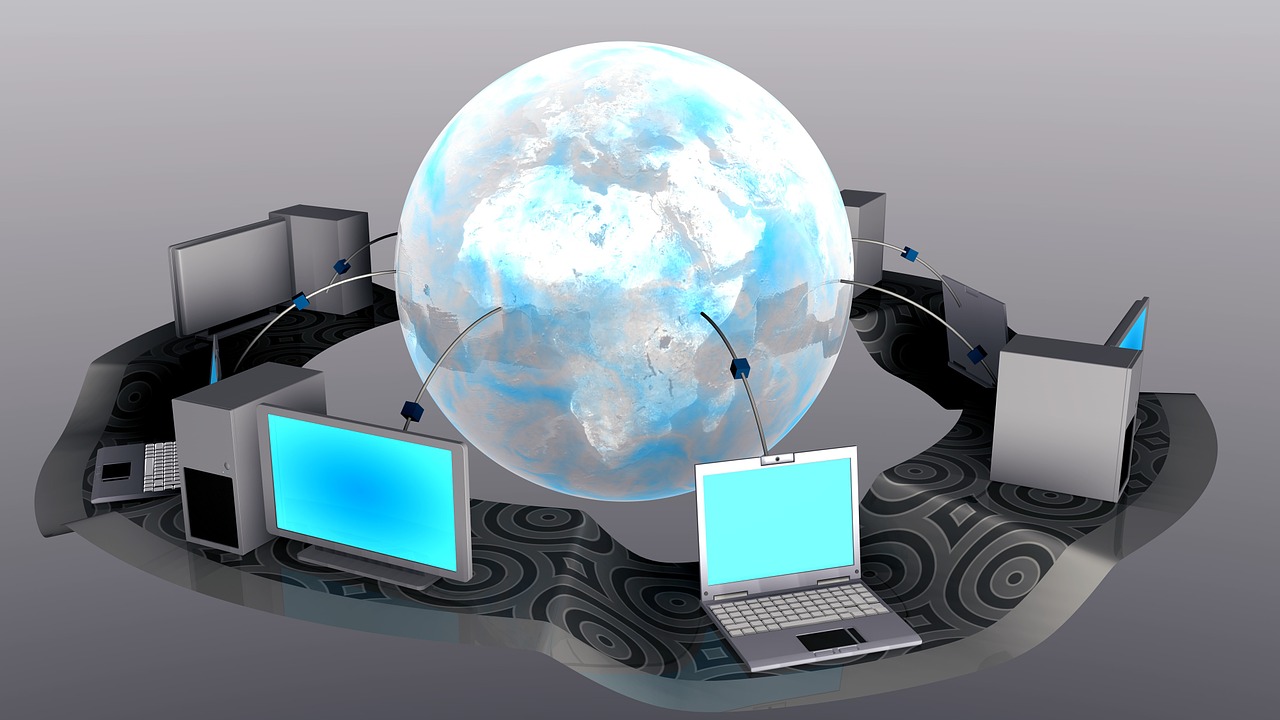The Baker administration submitted this press release to SOURCE media.
***
[broadstreet zone=”51611″]
SPRINGFIELD – Today, January 5, the Baker-Polito Administration announced three new programs to boost internet connectivity statewide, including a subsidy program to assist job seekers in the MassHire system that are facing a technology barrier. In addition, the Massachusetts Broadband Institute (MBI) at the MassTech Collaborative will expand a WiFi hotspot program statewide, delivering free high-speed access points to Gateway Cities, helping expand internet accessibility in areas hard-hit economically by the COVID-19 pandemic.
The programs are part of the $774 million economic recovery plan announced by the Administration in October, which designated $9.2 million for an expansion of internet access programs. Governor Charlie Baker, Lt. Governor Karyn Polito, administration officials, and private partners made the announcement during an event held at the Springfield Innovation Center.
The new subsidy program, called “Mass. Internet Connect,” is being launched this week by the MBI in partnership with the Executive Office of Labor and Workforce Development (EOLWD), working with 29 MassHire one-stop career centers on the rollout of the program. The MBI is collaborating with internet service providers across the state, including Comcast, Charter, and Verizon, to offer subsidies and devices to job seekers. The internet subsidies and technology support will help keep job seekers connected to critical online resources and job search tools.
“The internet is critical to those seeking a new job, and these new programs recognize and aim to help solve connectivity challenges for people looking for work,” said Governor Charlie Baker. “These investments will help to get and keep people connected, so they can continue to engage with prospective employers, access the trainings and services offered by MassHire and their partners, and ultimately get back into the workforce.“
[broadstreet zone=”53820″]
“These new programs are focused on jumpstarting the economy by getting job seekers and others the means to stay connected,” said Lt. Governor Karyn Polito. “By ensuring that Massachusetts students and job seekers have the connections they need, we are maintaining the education and training that is so critical to our workforce pipeline here in the Commonwealth.”
MassHire will work with job seekers within their system to identify technology barriers and determine the best solution or combination of solutions, including:
· Online resources for digital literacy;
· An internet subsidy for those residing in a municipality with Charter or Comcast access;
· A personal cellular hotspot from Verizon, for those in areas not served by Charter or Comcast; or
· A referral to a partner vendor, HiQ, which is distributing Chromebooks to persons that do not have access to a device at home to conduct a job search.
“For those job seekers interested in getting assistance with their technology barriers, the first step is to get into the MassHire system,” said Secretary of Labor and Workforce Development Rosalin Acosta. “Being in that system allows us to provide the personalized services and unemployment support that each job seeker needs. These new programs will allow us to bridge the unique technology gaps that individual job seekers face, whether an affordability or access issue.”
[broadstreet zone=”59945″]
“The pandemic has had a profound impact on our economy, but programs like these will help us battle back and put us on the path to recovery,” said Secretary of Housing and Economic Development Mike Kennealy. “In June, we saw unemployment reach a high of 17.7 percent, but that number has dropped to 6.7 percent in the last few weeks, with 12,000 new jobs added in November. We’re pleased with that progress, but are continuing to invest in programs like Mass. Internet Connect, which will get more people back to work.”
The program will run through June 30, with the state covering the cost of subsidies for internet service and devices on behalf of the job seekers. Job seekers must be in the MassHire system to take advantage of the Mass. Internet Connect program.
MassHire resources are available at https://www.mass.gov/topics/masshire.
The MBI has participated in trainings for the 29 MassHire one-stop career centers located across the state, preparing them to identify and support those clients facing technology barriers.
The Commonwealth’s programs will supplement the existing programs launched by providers in response to COVID-19 earlier this year.
[broadstreet zone=”53848″]
“Comcast appreciates the practical, pragmatic leadership shown by Governor Baker and Lt. Governor Polito during this pandemic and we are proud to be playing a role in the Commonwealth’s economic recovery,” said Dennis Mathew, Senior Vice President for Comcast’s Western New England Region. “There is no question that adoption of internet service and expansion of broadband networks to unserved addresses has been critical, especially during the last nine months. Comcast’s network has performed incredibly well and we continue to deliver the services and support our customers need for working and learning at home.”
“For Massachusetts residents who are looking for a job, having Internet access is not a luxury, it’s essential to their search,” said Michael Caralis, Director, Verizon Public Sector. “Verizon is committed to helping bridge the digital divide. Working with the commonwealth and MassHire to obtain hotspots and unlimited data for job seekers without Internet access is one way Verizon can help with economic recovery efforts.”
“From extending our network to rural areas, to partnering with the Commonwealth of Massachusetts to help make high-speed broadband more accessible to those in need, Charter is committed to delivering critical connectivity and helping to bridge the digital divide in local communities where our customers live and work,” said Camille Joseph, Group Vice President, Government Relations, Charter Communications.
[broadstreet zone=”59946″]
Another new program being launched to address the economic impact of COVID-19 is an expansion of free community WiFi hotspots across the state, targeting Gateway Cities and outer Cape Cod towns that will not be served through private provider initiatives. The new sites will offer communities the opportunity to establish both outdoor and socially-distanced indoor access to high-speed internet, helping boost free internet connection points for residents. These new public hotspots will supplement the efforts of private providers, targeting municipalities where additional free options are needed.
Also supported by the Partnerships for Recovery funding was the extension and expansion of the MBI’s WiFi Hotspot Program in 30 unserved communities in western and central Massachusetts, towns being supported by the Commonwealth’s Last Mile broadband expansion program. The announcement was previously made in early December, with the MBI extending the program up to June 30, 2021, and offering eligible communities the option to add a free indoor hotspot, an expansion of the program that will help provide critical connectivity over the winter months.
The state funding will cover the costs of wireless equipment, installation, maintenance, related operational expenses, and monthly internet service charges for both outdoor and indoor hotspots. MBI will also offer grants to towns that host an indoor hotspot to assist with costs to implement measures that will provide an appropriate environment for hotspot users, such as installation of plexiglass dividers and staff to monitor the hotspot and ensure proper social distancing among hotspot users.
[broadstreet zone=”59984″]
The Commonwealth’s Last Mile program has invested over $55 million in direct grants to close broadband access gaps, bringing the total to 29 of 53 communities with completed projects. The 29completed projects have delivered broadband connections to an estimated 25,000 citizens since 2016.
“We’ve made great strides in closing the gaps in unserved towns and the expansion and extension of the WiFi Hotspot program recognizes the need that still exists in these communities, from small business owners, educators, students, and residents connecting with family members,” said Carolyn Kirk, Executive Director of the MassTech Collaborative, the parent agency of the MBI. “As more Last Networks are launched in 2021, more of these residents will be able to access high-speed connections from their homes and businesses. We’re looking forward to celebrating more of these launches in the new year.”
A full list of the available WiFi hotspots in Last Mile communities can be found on MBI’s website. Each site provides residents with instructions on how to access the hotspots and residents who connect to the wireless service are urged to follow social distancing protocols in accordance with the guidance issued by the Massachusetts Department of Public Health. Partners on the hotspots in Last Mile communities are KCST/Mass Networks, Westfield Gas + Electric (WG+E), Crocker, and Access Plus.

A division of the Massachusetts Technology Collaborative, the Massachusetts Broadband Institute (MBI) is working to extend high-speed Internet access to homes, businesses, schools, libraries, medical facilities, government offices, and other public places across the Commonwealth. Learn more at https://broadband.masstech.org.

